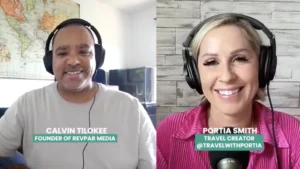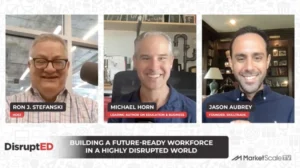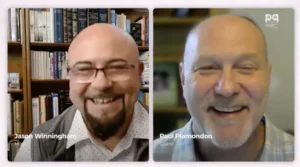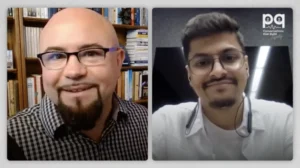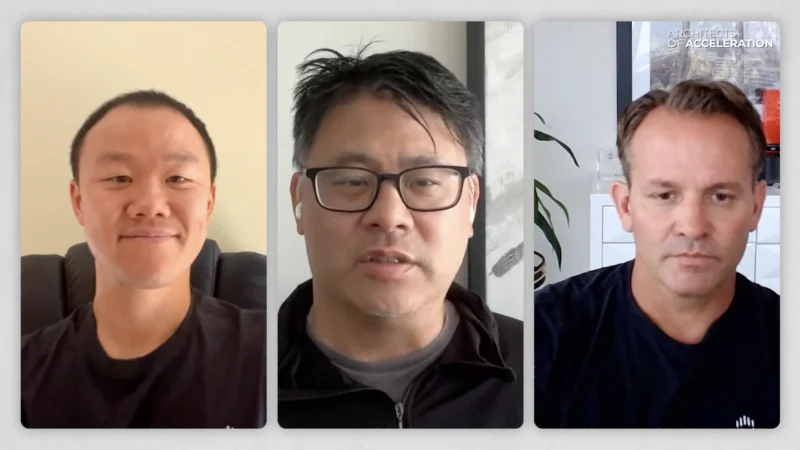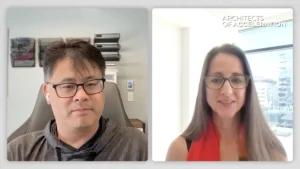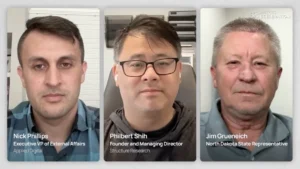On this episode of the University Series, we sat down with Eric Karson, Ph.D., Associate Professor of Marketing at Villanova University. In the undergrad digital marketing course that he teaches, Karson covers SEO, analytics, email marketing and social media marketing. However, a significant portion of time is devoted to a hands-on SEM simulator.
“SEO used to be the main component for digital marketing,” Eric told us. “[Now] we spend quite a bit of time on SEM, because buying those keywords is critical in today’s digital marketing space.”
The move from SEO to SEM has marked a large shift in digital marketing itself, where marketers have transitioned from “being attitude theorists to being behavior analysts,” Eric says. “The best predictor of future behavior is past behavior, and more and more we have the data on what behaviors our consumers are doing.”
EK: Well, I think what really drove the change from SEO to SEM was Google realizing they could monetize the ad work. There are these keywords that consumers search and Google realized we can charge people and have people bid at it, whereas SEO used to be a more organic, natural, ‘how do we lay out our website to best appeal to those search engines’. Now certainly doing good SEM and developing the ads and the landing pages for that is going to help your SEO. But as you look, again, the majority of Google searches today around a phone, if you look on your phone for most searches you conduct, most of the time it’s going to be ads on that whole screen. And so people may scroll through a page or so. Google has prioritized the SEM and the paid keywords move those on top and those top positions are really important to give the consumers what they’re looking for.
—-
EK: The real challenge is understanding how the things link from the search term, the keyword they’re buying with SEM all the way through the landing page that’s trying to land the sale. And this goes through sort of that very traditional sales funnel. We have to lead the consumers through it. Sometimes the students don’t get the sales at the bottom of that funnel they worked for and what they have to do is use the data from the simulation and understand where are their customers falling out.
—-
SS: So you mentioned the term segmentation and that’s something we’ve heard a lot in email marketing for example, the importance of segmenting your list so you’re not just blasting your entire list all the time and that requires thinking through some of these very specific personas. So like you said, the beginner photographer that’s just literally looking for their first digital camera all the way to an expert that’s looking for specific specs on a camera. What I wonder, though, is and this is kind of just an industry theory question, when you think through these different personas, how do you know how that particular Persona A will behave differently than Persona B?
EK: Well, we did, Shelby, and that’s a great question. I mean more and more, we used to talk about the consumer decision process. Now I think we call it the consumer journey and what we have to do is understand how can different consumers and different segments take this journey. And in fact, we do have the data because number one, you have to remember that Google and Bing and all of the search engines provide us all the words consumers type into their search box, then these search engines process that and tell us. Well, these are very high-frequency words and/or phrases and these are lower words either lower yet and you can bid on that.
If we map out what we think that consumer journey is like, we can then model certain words. Okay, well, the other consumer is just going to type in, “Durable Digital Camera.” we can bid on that. We can bid on words like that and ideas and then we will have information and how many times did that actually get clicked, and we design an ad that has a little blurb from the Kent’s Camera. We sell all sorts of durable beginners cameras. We have absolute statistics on how many people click on that ad that takes the consumer to a landing page of our choosing. We can see how much time people spend there and in deed, if they do move on to the sale.
So what’s different about marketing today is we’re looking over the consumer shoulder as they shop and that gives us a lot of information.
—-
SS: So this transition I guess from the consumer decision process to more of a consumer journey, you’re saying that we do have all of this information. We’ve mapped out the way that consumers go through each step of a purchase and now we do have great confidence in how those consumers shop and kind of what their next steps will be. How do sites like Amazon.com play into it? Often times, people are using Amazon as a search engine for a product. So instead of going just, you know, look for a specific product, they do type in best digital cameras there. How does Amazon factor into the digital marketing space?
EK: Amazon, is absolutely the 8,000-pound gorilla. ACNielsen just released a study I think in the last week or two that said that now more searches for specific products start on Amazon can start on Google. I think the number of them are around 48% start on Amazon then about 37% start on Google. So Amazon has a huge amount of data. And how they use this, if you ever type in a product search for something like desktop computers on Amazon or laptops, but what you could see is Amazon has used how consumers search on their site and they have created an almost instant array of choices on how would you like to shop for computers. If you want to shop by CPU type, by features, by graphics, processors, the hard drive side, again, using the data of consumers entering their search, Amazon and more broadly the search engine as well can see what is the consumer doing.



